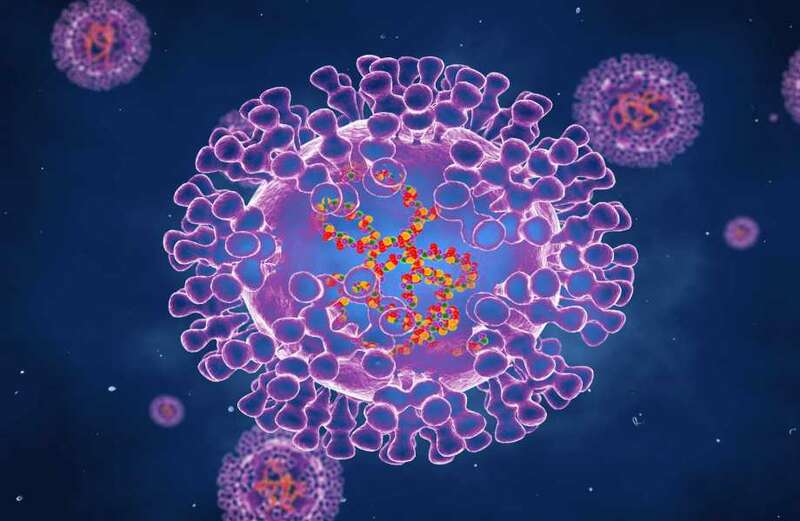THE mpox virus might have mutated making it resistant to the jab, experts fear.
It comes after 59 per cent of people in a new mpox outbreak in France tested positive for the bug despite claiming to be fully vaccinated.


While the jab does not provide complete protection against the virus, usually only 23 per cent of cases are vaccinated individuals.
The high vaccine uptake rate among the French cluster – 10 of 17 –alongside the jab's high efficiency rate has sparked fears of a mutation.
Those affected in the current French outbreak are men aged between 24 and 56.
 Spectacular New Year fireworks light up London sky as huge crowds celebrate across UK for first time in three years
Spectacular New Year fireworks light up London sky as huge crowds celebrate across UK for first time in three years
“No parties or events common to the cases have been identified," the French health authority said. “No one has required hospitalisation.”
The investigation into how the virus might have mutated and the efficiency of the vaccine is under way, and the French health authority told The Telegraph.
SYMPTOMS
Mpox - which as been renamed from monkeypox - is a rare disease that has similar features to human smallpox, although it is not as dangerous.
Common symptoms include a blistering rash, fever, chills, exhaustion, and muscle aches.
Complications of monkeypox can arise - some deadly.
They include secondary infections such as sepsis, encephalitis, and infection of the cornea leading to vision loss.
It is passed from person to person through close physical contact, and touching infected clothing or bedding.
A large proportion of cases identified are gay, bisexual or men who have sex with other men - although it is early days, and there could be a reason why only these people are presenting with symptoms.
Monkeypox is not normally a "sexually transmitted infection" (STI), but it can be passed on by direct contact during sex or very close physical touch.
Transmission can also occur via the placenta, known as congenital monkeypox.
 Hospitals run out of oxygen and mortuaries full amid NHS chaos
Hospitals run out of oxygen and mortuaries full amid NHS chaos
As many as one in 10 persons who contract the disease die, according to the World Health Organisation, mostly in younger people.
While usually found in Africa, the disease made headlines in 2022 when an outbreak was declared in the UK, Europe and the US.
Since then, there have been 3,579 cases reported in the UK, according to most recent data.
TREATMENT
Mpox symptoms last between two and four weeks. There is no treatment for it - it gets better on its own.
There are no specific vaccines available for monkeypox, either.
But outbreaks can be controlled using contact tracing.
A vaccine developed for smallpox - which was declared eradicated in 1980 - is also licensed for monkeypox.
This jab has been proven to be 85 per cent effective in preventing monkeypox. However, most people in the UK will not be vaccinated against smallpox given that it is no longer in circulation.
The Government has stocks of the smallpox vaccine which is being offered to very close contacts of those affected. These people also have to isolate for 21 days.
Dr Carlos Maluquer de Motes, Reader in Molecular Virology, University of Surrey, said: “Isolation is one of the most effective measures to contain the spread of a disease, particularly a viral disease, because it limits the number of susceptible individuals that can be exposed to the virus.
"Isolation of confirmed cases and the identification and vaccination of all their close contacts creates a circle of protected people around a positive case that is very effective in breaking chains of transmission.
"This ‘ring vaccination’ strategy was successfully used to eradicate smallpox, so it is a proven strategy to contain poxvirus disease.”
